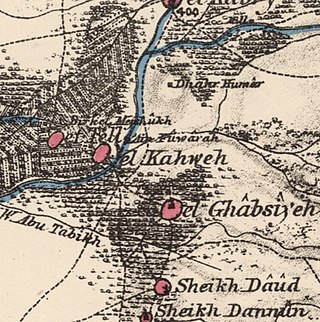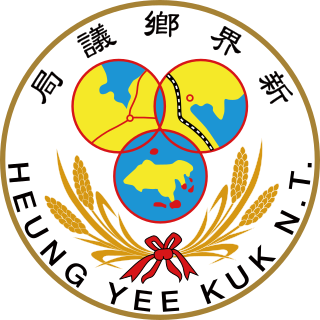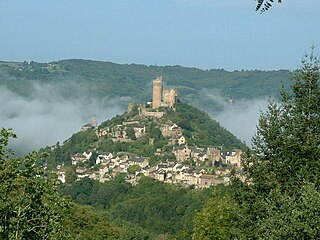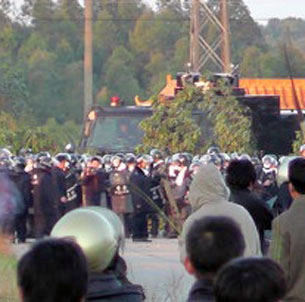
Al-Ghabisiyya was a Palestinian Arab village in northern Palestine, 16 km north-east of Acre in present-day Israel. It was depopulated by the Israel Defense Forces during the 1948-1950 period and remains deserted.

Iqrit was a Palestinian Christian village, located 25 kilometres northeast of Acre. Originally allotted to form part of an Arab state under the proposed 1947 UN Partition Plan, it was seized and depopulated by the Israel Defense Forces (IDF) during the 1948 Arab–Israeli War, and their territory later became part of the new State of Israel. All of its Christian inhabitants were forced to flee to Lebanon or the Israeli village of Rameh, and, despite the promise that they would be returned in two weeks' time, the villagers were not allowed to return. In 1951, in response to a plea from the Iqrit villagers, the Israel Supreme Court ruled that the former residents of Iqrit be allowed to return to their homes. However, before that happened, the IDF, despite awareness of the Supreme Court decision, destroyed Iqrit. Descendants of the villagers maintain an outpost in the village church, and bury their dead in its cemetery. All attempts to cultivate its lands are uprooted by the Israel Lands Administration.

The Heung Yee Kuk, officially the Heung Yee Kuk N.T., is a statutory advisory body representing establishment interests in the New Territories, Hong Kong. The council is a powerful organisation comprising heads of rural committees which represent villages and market towns.

Bishop's Nympton is a village and civil parish in the North Devon district of Devon, England, about three miles east of South Molton. According to the 2001 census it had a population of 932. The electoral ward has the same name but covers the village and much of the land to the north-east. The ward population at the 2011 census was 1,911.

Najac is a commune in the Aveyron department in southern France. Najac station has rail connections to Toulouse, Figeac and Aurillac.

Kafr Bir'im, also Kefr Berem, was a former village in Mandatory Palestine, located in modern-day northern Israel, 4 kilometers (2.5 mi) south of the Lebanese border and 11.5 kilometers (7.1 mi) northwest of Safed. The village was situated 750 meters (2,460 ft) above sea level. "The village stood on a rocky hill only a little higher than the surrounding area and faced north and west."

Chandi Prasad Bhatt is an Indian environmentalist and social activist, who founded Dasholi Gram Swarajya Sangh (DGSS) in Gopeshwar in 1964, which later became a mother-organization to the Chipko Movement, in which he was one of the pioneers. For his work Bhatt was awarded the Ramon Magsaysay Award in 1982, followed by the Padma Bhushan in 2005.
Perumalpattu is a suburb of Chennai Indian state of Tamil Nadu. It is situated between Chennai and Arakkonam near the Chennai–Arakkonam railway line. It is a town in the suburb of Chennai. Once upon a time the villagers lived near the koovam river which passes adjacent to the village, a big flood happened in the river which has resulted the villagers to migrate to the current land. ( so in tamil "aaru peralapattadhinaal" its called as "peralapattu" and people later adapted perumal name in to peralapattu and called "perumalpattu". It is the western part of the city of Chennai. "perumalpattu" is part of the Chennai Metropolitan Area. The nearest railway station is Veppampattu railway station of the Chennai Suburban Railway Network.

Ingolsheim is a commune in the north of the Bas-Rhin department in Grand Est in north-eastern France.

Bukit Batu is a mukim (subdivision) in Kulai District, Johor, Malaysia. Bukit Batu means "Hill of Rock" in Malay. Kulai Municipal Council administer the town.

Gargar is a village in the Lori Province of Armenia.
Nandikurali is a village in the southern state of Karnataka, India. It is located in the Raybag taluk of Belgaum district in Karnataka.

Thaneer Thaneer is a 1981 Indian Tamil language political drama film written and directed by K. Balachander, starring Saritha, Shunmugham, A. K. Veeraswami and Radha Ravi. The film, based on the 1980 play of the same name by Komal Swaminathan, was filmed by B. S. Lokanath and featured music by M. S. Viswanathan. It was released during the Diwali day in 1981.
The Small House Policy was introduced in 1972 in Hong Kong. The objective was to improve the then prevailing low standard of housing in the rural areas of the New Territories. The Policy allows an indigenous male villager who is 18 years old and is descended through the male line from a resident in 1898 of a recognized village in the New Territories, an entitlement to one concessionary grant during his lifetime to build one house.
Junjarwad also written as Zunjarwad is a village in Belgaum district in the southern state of Karnataka, India. This is located at a distance of 33km from taluk headquarter Athani. Major occupation of the habitats is agriculture and village has around 3000 acres of agriculture land. Sugar cane is the primary crop. Majority of the villagers belongs to digambarJain religion .Other religions like lingayat, Islam and others are also practiced by villagers
Malikwad is a village which is located in the Belgaum district of Karnataka state, India. It is located on the banks of the Doodhganga River. The river acts as the border between Karnataka and Maharashtra. Due to the border separation, the people in the area are bilingual; many can speak as well as write both Kannada and Marathi languages. Facilities in the village include schools, a library, and public toilets. Agriculture is a mainstream source of income of the village. It is regarded as one of the highest sugarcane producing villages. Along with sugarcane, farmers also grow different kinds of fruits and vegetables such as tomatoes and bananas. Almost one member of every family in the area is in the Indian army, so people have called this village “Sainik Malikwad,” the word “sainik” meaning “soldier.”
Shinal is a village in Belgaum district of Karnataka, India.

The Wukan protests, also known as the siege of Wukan, was an anti-corruption protest that began in September 2011, and escalated in December 2011 with the expulsion of officials by villagers, the siege of the town by police, and subsequent détente in the village of Wukan, in the east of Guangdong province. The villagers rose up again in June 2016, but were again suppressed. The most recent rounds of clashes were in September 2016, when the former village leader Lin Zulian was sentenced to jail. The clashes were suppressed.
Abdolabad-e Kani Kabud is a village in Mirbag-e Shomali Rural District, in the Central District of Delfan County, Lorestan Province, Iran. At the 2006 census, its population was 56, in 11 families. Kankaboud Olia or AbdulAbad Mirbag is a village in the central part of Delfan County in Lorestan Province, Iran. It is seven kilometers away from Noorabad city. It has a very mild climate. Most of the lands in this village are dry land. The village has 346 hectares of agricultural land, the main crops of which are wheat, peas and barley. The occupation of the villagers is mainly agriculture and to some extent animal husbandry. The lands known as Dareh garaki, which have been seized and registered as national lands by the Natural Resources Department of Delfan, belong to this village. Most of the villagers have their own gardens. In terms of water resources, it lives in relative poverty. It has a comprehensive health service center and many springs, the most important of which are Cheshmeh Kamreh spring, Cheshmeh Pahneh spring, Kani Sore or Sorekh spring, Dariagho, etc. This village is located in North Mirbag district and according to the census of Iran Statistics Center in 2005, its population was 56 people. Of course, the population of the village now (2018) is more than 20 families and 100 people. In addition, a number of villagers have migrated to Khorram Abad and Noor Abad cities. The correct name of the village is Abdul Abad Konkabud. The villagers belong to one of three dynasties: Sheikhian, Abdian and Shahgol. This village has many educated people, some of whom are working as faculty members in the country's universities. Among these people is Dr. Ali Sheikhian, who has a doctorate in immunology and is a member of the board of immunology.
Astanjin is a village in Kaghazkonan-e Markazi Rural District of Kaghazkonan District, Mianeh County, East Azerbaijan province, Iran.











